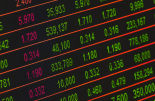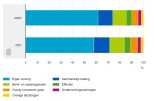Swissquote Bank: Sterling firm on encouraging jobs, retail sales data. Gold tests $2K on improved global sentiment
Swissquote Bank: Sterling firm on encouraging jobs, retail sales data. Gold tests $2K on improved global sentiment

by Ipek Ozkardeskaya, Senior Analyst at Swissquote Bank
European markets opened the week on a neutral note, the US’ blue-chip stocks gained on Monday, while tech giants retreated with the exception of Apple shares. Investors moved capital to industrial stocks. Oil edged higher and Asian stock indices advanced the most in a week.
But there is no specific news supportive of the current positive market vibe. US policymakers didn’t find a midway on the next fiscal relief package, and the Covid-19 cases topped 20 million globally.
Yet, investors are happy to live with the mounting global infections as long as they do not trigger a new round of strict confinement measures.
Activity in FTSE (+0.81%) and DAX futures (+0.42%) point at a positive open on Tuesday.
On the data deck, the US JOLTS job openings rose to 5.9 million at the end of June versus 5.4 million printed a month earlier. The data came in line with Friday’s improved jobs figures.
The somewhat better investor mood dragged the gold price near $2000 per oz on Tuesday, as the US 10-year yield rose to two-week highs. Despite losing $60 in the past three sessions, gold remains in the overbought territory, hinting at the possibility of a deeper downside correction in the near future. Next important support is eyed at $2000/1980 area, the psychological level and the latest resistance before the price of an ounce burst above the $2K mark.
Silver however shows a better performance in line with the boost in industrial stocks, with the price of an ounce consolidating above the $28 mark despite the meaningful setback in gold. The metal has potential to extend gains toward the $30 handle.
WTI traded near $42.50 per barrel, as Aramco whose profit plunged by more than 73% in the last quarter, said the global oil demand will continue improving. Yet worries regarding the pace of recovery could top the appetite prior to the 200-day moving average, $42.90 pb.
In the currency markets, the US dollar is a touch stronger against the leading reserve currencies including euro, yen and Swiss franc.
The EURUSD extended losses to 1.1722 on the back of a broad-based recovery in the greenback. The single currency rallied more than 10% since its March dip against the US dollar, and the overstretched long euro positions combined with a heavily short USD market point at a deeper downside correction in EURUSD. We expect a setback to 1.1635, the minor 23.6% retracement on March – August rebound in the continuation of the actual bearish move.
Sterling remained firmed against a stronger US dollar on the back of encouraging economic data. The British jobless rate remained unchanged at 3.9% in June versus 4.2% expected by analysts and the claimant count surprisingly fell 28.1K in July versus +10K penciled in by analysts. The British retail sales rose 4.3% y-o-y in July according to data released by BRC on Tuesday. While the second consecutive month surge in British retail sales gave hope to investors, the data provider warned that the strong headline figures hid contrasting underlying performances as many shops remain on the brink of survival. The medium-term outlook in sterling remains weak, however, and a further recovery in the US dollar could easily throw the pair below the $1.30 mark.
Elsewhere, the antipodeans were better bid on improved risk appetite.
The Central Bank of Turkey (CBT) announced to halve the liquidity limits offered to primary dealers as the Turkish lira fell to fresh all-time lows against the US dollar and the euro. Normalisation measures should slow down but will unlikely reverse the sell-off in the lira with inflation hovering around 12% versus the CBT’s policy rate of 8.25%, and the 5-year CDS hanging near the highest on record. Moving forward, investors need time to restore confidence in central bank’s ability to stabilize the lira following the back-to-back interest rate cuts before the pandemic that raised many eyebrows regarding the bank’s independency and the ultra-lose policy response to the pandemic. The bank will likely be forced to increase rates at the August 20 meeting.










